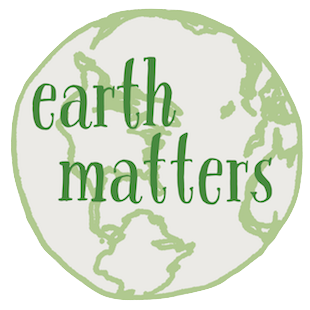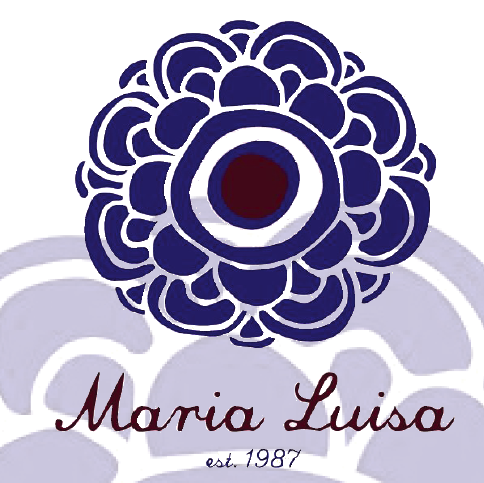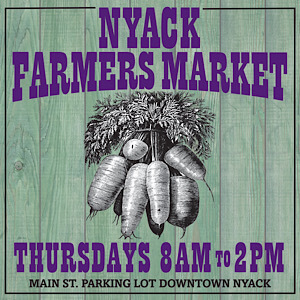Earth Matters focuses on conservation, sustainability, recycling and healthy living. This weekly series is brought to you by Maria Luisa Boutique and Strawtown Studio.
If Earth Matters to you, sign up for our mailing list and get the next installment delivered bright to your inbox.
by Sarah Fecht
Thanksgiving: a time for food, family, friends, and reflecting on the things that matter most in life. But for all the cheer and goodwill that Thanksgiving and the winter holidays can bring, this isn’t the most wonderful time of year from our planet’s perspective. All our extra eating, traveling, and shopping can have a big impact on the environment.
If you want to give thanks to the planet and give back a little, the ideas below can help to reduce your environmental footprint this Thanksgiving. Bonus: Many of these tips will save you time, stress, and money, too!
Shop Conscientiously
- Consider shopping at your local farmers market for your Thanksgiving feast. Foods grown locally require fewer greenhouse gases to get to you, and are usually grown on smaller farms using more sustainable practices. Buying locally also helps to keep jobs and money in your community’s economy. Plus, local food tends to be fresher and tastier.
- Buying organic food can help the environment, too, if it fits within your budget.
- Instead of taking multiple trips back and forth, consolidate shopping into fewer trips so you can minimize the extra miles and save gas.
Reduce Food Waste
When we throw away moldy food, we’re also throwing away all of the water, fertilizer, and fuels that were used to grow and transport the food. And when food waste goes into a landfill, it releases methane, a potent greenhouse gas. To cut down on food waste:
- Plan out your meal before you go shopping—make a list, and buy only what you need.
- Repurpose your leftovers. Getting tired of the same old turkey and mashed potatoes? Try one of these creative recipes to spice up your leftovers.
- Freeze what you can’t eat within a few days.
- Compost the inedible stuff, like potato peels, egg shells, and food that’s gone bad. Composting recycles the nutrients within the food and helps agricultural soil retain nutrients and water. The easiest way to participate is to store food scraps in a bin in your freezer and find a compost collection site near you.

Photo: Craig Adderley/Pexels
Go Big on Veggies and Sides
- Eating less meat is one of the most impactful choices you can make to help reduce climate change and conserve natural habitats. Thankfully, turkey isn’t as bad for the environment as beef, but it still requires extra land, water, and fuel to produce compared to veggies. And according to the NRDC, about 200 million pounds of turkey meat are thrown out over the Thanksgiving holiday week every year—what a waste! Consider switching to Tofurkey, or cooking a smaller turkey and extra veggie sides. (Vegetarian recipe ideas here and here.) The side dishes are the best part of Thanksgiving anyway!
WHAT DOES IT MEAN TO LIVE A TRULY SUSTAINABLE LIFE?

Prof Karl Coplan taking a kayak across the Hudson as part of his irregular commute to work.
Is it possible to live within a truly sustainable carbon footprint, while still living well? What are the options for those who would like to live sustainably but don’t want to go off the grid or become a hermit?
Many of us are trying to live more sustainably, but what would it mean to live within a truly low carbon footprint? Karl Coplan will share his personal journey to cut back on carbon without giving up on quality of life.
Coplan will talk about the joys and challenges of a year on a truly sustainable carbon budget: kayaking to work, hunting down electric-car charging stations, eating a Mediterranean-style diet, and enjoying travel and vacations while avoiding long-distance flights. He will explain how to set a truly sustainable personal carbon cap, then measure and track your actual footprint.
Presenting the pros and cons of different energy, transportation, and lifestyle options, Coplan believes that there does not have to be a trade-off between the ethical obligation to maintain a sustainable carbon footprint and the belief that life should be fulfilling and fun.
Prof. Karl Coplan, Director of the Pace Environmental Litigation Clinic, will speak at the New City Library, 220 N Main St, in New City on The Mon Dec 2 at 7:15p. This event is being hosted by the Rockland Sierra Club and NJ/Rockland 350.
Travel Smarter
- Travel less often. Instead of making that yearly trip to Grandma’s house in Oregon, maybe you could stay home every other year and save those carbon emissions. If this option makes sense for you and your family, it can also save a lot of time, money, and stress.
- Take a bus instead of flying or driving. Obviously this isn’t an option for everyone, but hopping on a Greyhound bus can save bigtime on carbon emissions, especially compared to flying.
- Buy carbon offsets. If you can’t avoid holiday travel, it is possible to support projects that will remove or prevent carbon emissions from other sources—for example by planting trees or installing wind turbines.
- Travel off-peak. Sitting in traffic wastes your time, patience, and gas. Luckily, Google has calculated the best and worst times to embark on a Thanksgiving road trip from the major cities around the U.S. In general, 3 – 4p on the Wednesday before Thanksgiving is going to be a nightmare no matter where you are.
Rethink Black Friday and Cyber Monday
- Avoid unnecessary purchases. Buying less stuff helps to conserve natural resources, lower greenhouse gas emissions from manufacturing and shipping, and reduce waste in landfills.
- Shop for gifts at the thrift store instead. Giving older items a second life is a great way to maximize the energy and resources that went into creating each item. Thrift stores are also a great place to find unique gifts at great prices!
- Consider giving gifts of time or experience, or donating to charity instead of buying the latest gadgets.
- Look for gift fairs featuring local artisans and fair trade products. The Fair Trade designation means that the items were made with respect for the welfare of workers and consumers as well as for the health of the environment.
16 Ideas For a More Sustainable Thanksgiving and Black Friday was originally published in the State of The Planet blog by the Earth Institute at Columbia University. Sarah Fecht is the content manager at State of the Planet.
Earth Matters, a weekly feature that focuses on conservation, sustainability, recycling and healthy living, is sponsored by Maria Luisa Boutique, and Strawtown Studio. Read Earth Matters every Wednesday on Nyack News And Views, or sign up for the Earth Matters mailing list.











